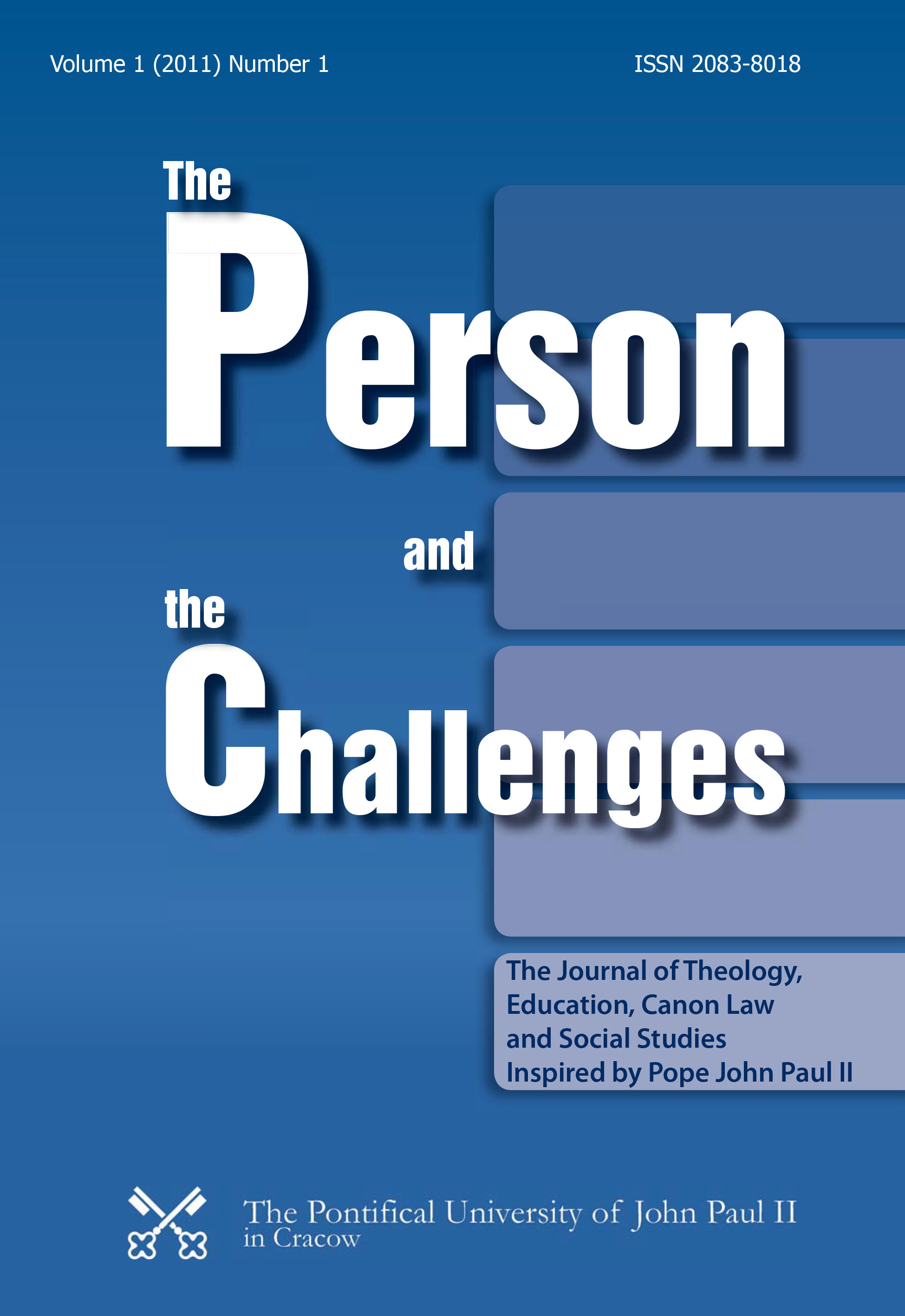Adaptive Religious Education at the Service of Inventiveness: A scientific way of being creative and effective in Religious Education
DOI:
https://doi.org/10.15633/pch.834Słowa kluczowe:
adaptive religious education, symbol system, teaching methodsAbstrakt
Student uniqueness demands that the teacher/catechist is inventive not only in the learning methods and teaching techniques employed but also in the way content is structured. Only in this way can the teacher ascertain that his/her students’ requirements are met and, consequently, student learning facilitated. However, teachers’ creativity should not mean haphazard choice of methods and techniques. Teaching is both an art and a science. The limitless nature of creativity should be used judiciously and made to bear fruit through the application of knowledge of educational psychology and instructional design. By using Adaptive Religious Education, the teacher may be guided to use different techniques in a methodical manner in order to ensure and enhance student learning. In particular, thesystematic use of different symbol systems can help teachers to improve student learning. The paper will put forward a number of principles and practical suggestions that may guide teachers in planning R.E. lessons.
Bibliografia
Ackerman P. L., Aptitude complexes and trait complexes, “Educational Psychologist” 38 (2003) Nr. 2, p. 85-93.
Baddeley A. D., Working Memory, Oxford, U.K. 1996, Publishing House Clarendon.
Braido P., Lineamenti di storia della catechesi e dei catechism. Dal «tempo delle riforme» all’eta degli imperialismi (1450-1870), Leimann (Torino) 1991, Publishing House Elle Di Ci.
Cronbach L. J., The two Disciplines of Scienti fi c Psychology, “American Psychologist” 12 (1957) Nr. 11, p. 671-684.
Cronbach L. J. and Snow R.E., Aptitudes and Instructional Methods. A Handbook for Research on Interactions, New York 1977, Publishing House Irvington.
Congregazione per il Clero, Direttorio Generale per la Catechesi, Città del Vaticano 1997, Publishing House Libreria Editrice Vaticana.
Gellel A. M., Adapting Religious Education to Individual Requirements. A Means of Being Faithful to the Pedagogy of God in the Classroom, Malta 2007, Publishing House Foundation for Theological Studies.
Gellel A. M., Adapting to the Requirements of the Individual in the R.E. Classroom, in: M. de Souza, K. Engebretson, G. Durka, R. Jackson, & A. McGrady (eds.), International Handbook of the Religious, Spiritual and Moral Dimensions of Education, Netherlands: Publishing House Springer, p. 1093-110.
Guilford J. P., Way Beyond the IQ: Guide to Improving Intelligence and Creativity,
New York 1977, Publishing House McGraw-Hill.
Kapitzke C. & Graham P., Curriculum and Religion, in: P. Peterson, E. Baker, & B. McGaw (eds.), International Encyclopedia of Education Amsterdam 2010, Publishing House Elsevier Science, p. 272-276.
Lee M. J., Facilitating Growth in Faith Through Religious Instruction, in: M.J. Lee (ed.), Handbook of Faith Birmingham, Alabama 1990, Publishing House REP, p. 264-302.
Paul VI, Apostolic Exhortation Evangelii Nuntiandi 1975, http://www.vatican. va/holy_father/paul_vi/apost_exhortations/index.htm.
Sacra Congregazione del Clero Direttorio Catechistico Generale, Città del Vaticano 1971, Publishing House Libreria Editrice Vaticana.
Second Vatican Council, Christus Dominus 1965, http://www.vatican.va/archive/ hist_councils/ii_vatican_council/documents/vat-ii_decree_19651028_ christus-dominus_en.html.
Sewall G.T., Religion in the Classroom: What the Textbook Tells Us, American Textbook Council 1995, http://historytextbooks.org/religion.pdf.
Slavin R.J., The Philosophical Basis for Individual Difference According to Saint Thomas Aquinas, Washington D.C. 1936, Publishing House Catholic University of America.
Snow R.E., Aptitudes and Symbol Systems in Adaptive Classroom Teaching, “Phi Delta Kappan” 78 (1997) Nr. 5, p. 354-360.
Snow R.E., Aptitude Theory: Yesterday, Today, and Tomorrow, “Educational Psychologist” 27 (1992) Nr. 1, p. 3-52.
Snow R.E., The concept of Aptitude, in: R.E. Snow & D.E. Wiley (eds.), Improving Inquiry in Social Sciences: A volume in honour of Lee J. Cronbach, Hillsdale, New Jersey 1991, Publishing House Lawrence Erlbaum Associates, p. 249- 284.
Snow R.E., Corno L., & Jackson D., III. Individual Differences in Affective and Conative Functions, in: D. C. Berliner & R. C. Calfee (eds.), Handbook of Educational Psychology, New York 1996, Publishing House MacMillan, p. 243-310.
Pobrania
Opublikowane
Numer
Dział
Licencja
Prawa autorskie (c) 2015 Adrian Gellel

Utwór dostępny jest na licencji Creative Commons Uznanie autorstwa 4.0 Międzynarodowe.
Autorzy publikujący w czasopiśmie udzielają jego wydawcy zgody o następującej treści:
- Autor zachowuje autorskie prawa majątkowe do utworu, a jednocześnie udziela wydawcy czasopisma zgody na jego pierwszą publikację w wersji drukowanej i wersji online na licencji Creative Commons Uznanie autorstwa 4.0 Międzynarodowe oraz zgody na wykonywanie opracowań, w tym przekładów.
- Autor ma możliwość udzielania zgody niewyłącznej na opublikowanie utworu w wersji, która ukazała się w czasopiśmie (np. zamieszczenia go w repozytorium instytucjonalnym lub opublikowania w książce), wraz z informacją o jego pierwszej publikacji w czasopiśmie.
- Autor może umieścić swój utwór online (np. w repozytorium instytucjonalnym lub na swojej stronie internetowej) jeszcze przed zgłoszeniem utworu do czasopisma.

